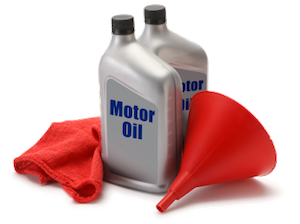home | e-mail | terms of use
oilspecifications.org
API SP Engine Oil Category
On May 1, 2020 the American petroleum Institute (API) announced that service category SP has been accepted and available for licensing. The goal of this category was to make sure that motor oils meeting the needs of recent engine technologies are adequately certified. The related engine technologies include compact engines, gasoline direct injection (GDI), turbochargers and gasoline particulate filters (GPF). These modern technologies made API to update their oil sequences, since motor oils basically got way ahead of the existing ones. Launching API SP handled this situation.
API Category SP motor oils provide countless performance benefits compared to the current API SN and API SN PLUS oils, in case of spark ignited internal combustion engines. These benefits include:
LSPI prevention: LSPI stands for Low Speed Pre-Ignition. Normally, combustion happens simultaneously with ignition, during the piston’s downward motion. But in case of LSPI, when the fuel is injected in the combustion chamber it may form a liquified solution with the thin residual layer of oil that sits on the cylinder wall. This fuel-oil solution is then pushed upwards by the piston during the compression stroke and the pressure may cause it to ignite, thus resulting in an unplanned combustion pressure wave. This is the LSPI event. Afterwards, the spark plug ignites the remaining fuel-air mixture that results in a second combustion shockwave. The combined force of the shockwaves is enough, in the long run, to create cracks in the piston and eventually to cause sections of the piston to break away completely. API SP oils are formulated in order to prevent this effect and protect the engine.
Fuel efficiency: API SP grade motor oils need to play a role in reducing fuel consumption too. This is important for meeting environmental expectations and economic considerations. Since engine oils need to keep up with engine development, it is evident that motor oil development is necessary when trying to improve fuel efficiency.
Engine protection: API SP engine oils need to protect the engine from wear and they also need to provide protection against chain wear. They must also protect from harmful effects resulting from higher temperatures. Modern engines operate on higher temperatures and under heavier loads, so the oil needs to have stronger anti-wear properties.
Compatibility with emission reduction systems: API SP motor oils need to be compatible with catalysts and aftertreatment systems, since these are now crucial and unavoidable for meeting the relevant standards.
Furthermore, the new category provides improved protection against corrosion, sludge and varnish formation and also expects improved oxidative stability.
During the 7 years API SP, ILSAC GF-6A and GF-6B were in development, 7 new tests have been introduced, to help comparing the motor oils to these standards’ expectations. Also, new evaluation methods and precision measurement features have been introduced, while the additive manufacturers performed separate tests to prove that API SP oils meet the strictest requirements of the most recent engine technologies. Among others, the new tests include the following:
Chain wear tests: These measure how well the oil protects chains from wear.
Low viscosity oil tests: These tests verify the low viscosity oil’s behavior under different circumstances. Oil viscosities get lower and lower, but they still need to provide adequate lubrication during cold start, while still providing effective protection at high temperatures.
Low Speed Pre-Ignition (LSPI) test: As explained earlier, LSPI is a phenomenon which results in dangerously high pressure and temperature in the engine, which can lead to engine damage. This test is making sure that the oil provides effective protection against LSPI. API SP level additives make sure that it does. This was the most important research area that had a profound effect on engine oil additives. LSPI appeared with the introduction of the new engine technologies and caused serious technical issues that had to be dealt with unconditionally.
API SP is similar to ILSAC GF-6A. However, API SP has stricter requirements related to fuel economy, emission levels, aftertreatment compatibility and E-85 engine protection. This effectively makes API SP a stricter standard than ILSAC GF-6A.


